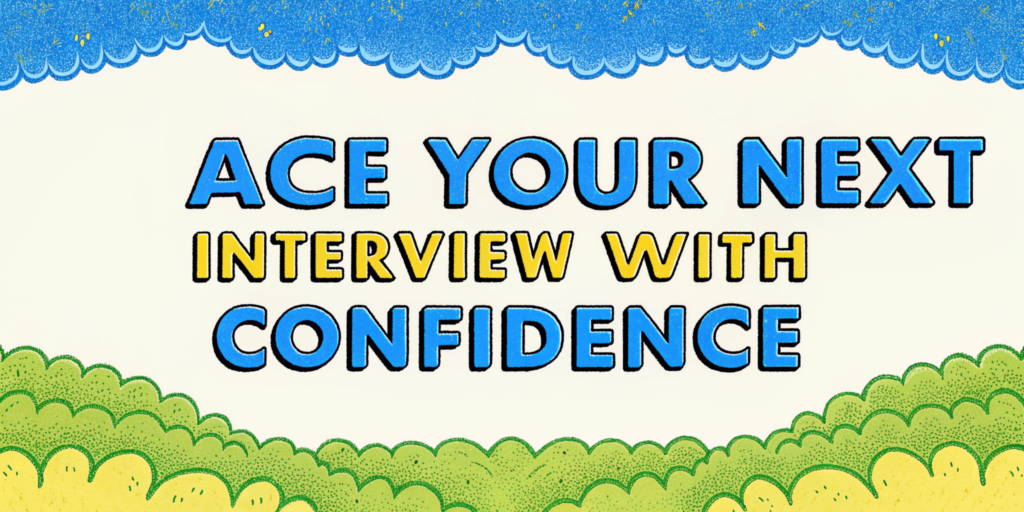Breaking into the world of AI as a researcher or engineer can feel both exhilarating and daunting. Whether you’re fresh out of university or have spent a decade honing your programming skills, there’s one universal truth: the technical interview process is unforgiving. But don’t worry—I’ve been there! I left university a few years ago with a master’s degree in computer science, limited experience, and big dreams of working in machine learning and data science. After intense job hunting, making mistakes, and learning from my interview prep, I landed roles I was genuinely excited about 💼.
In this blog, I’ll uncover valuable lessons based on my journey and insights from the 12+ job applications, 8 intensive interviews, and 3 final offers I received. Whether you’re prepping for an AI engineer interview, becoming an AI researcher, or decoding SQL questions, I’ve got you covered. 🚀
Let’s demystify the process step by step and help you nail those technical interviews!
1️⃣ My Journey: From Uni Graduate to AI Engineer
Not too long ago, I was sitting on my tiny desk in a cramped apartment, figuring out what I really wanted to do after earning my master’s in computer science. I had some engineering knowledge, good coding foundations, and dreams of working with machine learning models. 🌟
But reality hit hard: landing my dream role wasn’t as simple as writing “passionate about AI” on my resume. Having decent skills was just an entry ticket. Companies weren’t just hiring coders—they wanted problem solvers, communicators, and innovators who could thrive across technical and business challenges alike.
After applying to 12 positions, enduring nerve-wracking interviews spanning months, and solving coding challenges until my fingers hurt, I finally cracked the formula. Here’s everything I’ve learned about mastering technical interviews for roles like AI researcher, AI engineer, and data scientist.
2️⃣ Understanding Technical Interview Question Types
AI interviews come in all shapes and sizes, but they mostly revolve around these four core categories:
| Question Type | What It Tests | Example Task |
|---|---|---|
| Programming | Core coding ability | Write a function to reverse a linked list. |
| Data Science | Analytical and modeling knowledge | Explain the bias-variance tradeoff in ML. |
| Behavioral | Collaboration and communication | How do you handle stakeholder disagreements? |
| Coding Challenges | Practical problem-solving skills | Build a machine-learning API from scratch. |
Understanding these categories helps you focus your prep. Here’s how I tackled them one by one:
3️⃣ Bias-Variance Tradeoff: Why It’s Every Interviewer’s Favorite
This question came up in 50% of interviews I attended—and for a good reason. It’s fundamental to understanding machine learning. The bias-variance tradeoff explains why balancing overfitting (high variance) and underfitting (high bias) is critical when training models.
Let me break it down visually:
Imagine training a model:
- High Bias: Your model oversimplifies. It’s like using a decision tree with only two nodes to predict the stock market—you’re way off target.
- High Variance: Your model fits literally every detail of your training set, but flunks on new data. Overfitting at its finest.
- The Sweet Spot: A balanced tradeoff where the model generalizes well to unseen data.
✅ Pro Tip: When asked about bias-variance, relate it back to real-world tasks your interviewer’s company might face and explain how you’d find that sweet spot.
4️⃣ SQL in AI Interviews: The Hidden MVP
You might think a cutting-edge AI interview would revolve around transformers and GPT models. But here’s the plot twist: SQL interviews are more common than you expect, even for research roles.
Why? Every company has data, and knowing how to query that data is fundamental. I was thrown curveballs like:
“Write an SQL query to find users with the highest purchase amount in Q1 2023.”
Not fancy, right? But the interviewer wanted to test my ability to write efficient logic on the fly under pressure.
| Key SQL Tips | Examples |
|---|---|
| Master JOINs and Subqueries | How would you aggregate data across tables? |
| Optimize with Indexes | Why is query performance critical? |
Be prepared for SQL—it might just make or break your interview.
5️⃣ Behavioral Questions: Handling Stakeholders and Team Dynamics
Behavioral questions aren’t about coding—they’re about team fit, communication, and empathy. One of the toughest was:
“A manager insists on using Feature A for your ML model, but your research proves Feature B is better. What do you do?”
In this situation:
- Present your data-backed findings in a clear and concise manner.
- Show collaborative intent by incorporating their concerns into your justification.
- Always maintain professional respect.
✅ Insight: Many companies assess your ability to align technical expertise with business needs. Frame answers to show how you’d add value cross-functionally.
6️⃣ Missteps to Avoid in AI Interviews
Sure, mistakes happen—but some are avoidable. I once confidently suggested loading a CSV file using pandas without addressing performance considerations. The interviewer shot back, “That’s wrong!” 🤦♂️
Lesson learned:
- Don’t overgeneralize answers. (A slow pandas implementation might be inadequate at scale!)
- Emphasize structured problem-solving.
- Stay calm if challenged and pivot your response wisely.
7️⃣ My Secret Weapon: Ninjafy AI
Let me share a game-changer that turbocharged my preparation: Ninjafy AI. It’s hands down the best AI interview copilot I’ve come across.
How it helped me:
- Simulated interviews tailored to AI researcher roles. It prepared me for everything from generative AI questions to behavioral scenarios seamlessly.
- Leveraging NinjaCopilot™ during live interviews gave me real-time suggestions aligned with my experiences.
- Invisible Eyetrack™ ensured my gaze remained confident and steady—no awkward eye movement giveaways! 👀
💡 Plus, did you know 39% of Ninjafy users land their dream job? It’s like having a personal career coach with AI superpowers!
Here’s a quick comparison table for clarity:
| Feature | Ninjafy AI | Other Tools |
|---|---|---|
| Tailored Role Prep | ✅ Customized for AI researchers | ❌ Limited templates |
| Real-Time Assistance | ✅ NinjaCopilot succeeds live | ❌ Mostly pre-recorded prep |
| Industry Intelligence | ✅ GPT-4-Powered Industry Brain | ❌ Generic insights |
Conclusion: The Recipe for a Successful AI Interview
Landing your dream job—whether it’s as an AI researcher or data scientist—is no cakewalk. Success requires mastering technical concepts (like bias-variance tradeoffs), SQL expertise, and next-level communication in behavioral interviews. Along my journey, tools like Ninjafy AI turned my weaknesses into strengths and helped secure offers from great organizations.
If you’re preparing for your next technical interview, stay methodical, brush up on the fundamentals, and remember to show your passion every step of the way. 🌟
Got any interview war stories, tips, or questions? Drop them in the comments below, and let’s help each other grow!



